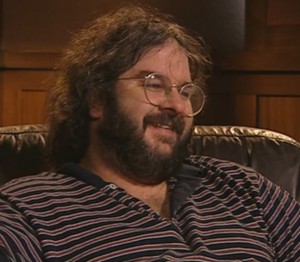 Have you ever wondered how Peter Jackson’s film-making style has evolved over the last 15 or so years?
Have you ever wondered how Peter Jackson’s film-making style has evolved over the last 15 or so years?
The short, retrospective video below offers a few tantalizing glimpses into Jackson’s thoughts on his works as he’s built his career across that period — something that, perhaps, could one day lead to a cinematic production involving The Silmarillion. Continue reading “Is PJ inching towards making The Silmarillion?”
Posted in:
Share:

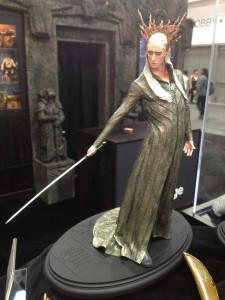 It is hard to believe, but the little live webcast that could, TORnTUESDAY, has reached a new milestone! Two years non-stop, ongoing live coverage of major fan events such as Comic-Con and Dragon*Con — as well as bringing you a bevy of stars such as Sean Astin, Dominic Monaghan, Billy Boyd and his band Beecake, Royd Tolkien, “The Last Unicorn” and LOTR writer Peter S. Beagle, “Hellboy” star Doug Jones, “Teenage Mutant Ninja Turtles” creator Kevin Eastman, the Happy Hobbit girls, “Lord of the Rings” Living Card Game designers, and many more!
It is hard to believe, but the little live webcast that could, TORnTUESDAY, has reached a new milestone! Two years non-stop, ongoing live coverage of major fan events such as Comic-Con and Dragon*Con — as well as bringing you a bevy of stars such as Sean Astin, Dominic Monaghan, Billy Boyd and his band Beecake, Royd Tolkien, “The Last Unicorn” and LOTR writer Peter S. Beagle, “Hellboy” star Doug Jones, “Teenage Mutant Ninja Turtles” creator Kevin Eastman, the Happy Hobbit girls, “Lord of the Rings” Living Card Game designers, and many more!
To mark this special anniversary we will have a lot of material to cover, and let’s all take a closer look at the Extended Edition of THE HOBBIT: AUJ that is coming out — so please bring your questions and comments to the chat!
We launch TORn TUESDAY every week at 5:00PM Pacific: brought to you by host Clifford “Quickbeam” Broadway and producer Justin “Nothing Up My Sleeve” Sewell — Our innovative live show includes worldwide fans who join us on the Live Event page with a built-in IRC chat (affectionately known as Barliman’s Chat room). Be part of the fun and mischief every week as we broadcast *live* from Meltdown Comics in the heart of Hollywood, U.S.A.!
And yes our YouTube channel will have this archived later. You can find us on www.youtube.com/the1nering
————————————————-
Follow us on Twitter: @theoneringnet
Follow Cliff Broadway: @quickbeam2000
Like us on Facebook: www.facebook.com/theoneringnet
Posted in:
Share:

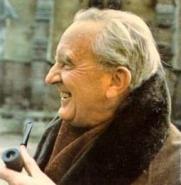 TORn friend, Brian Tither, who has studied Old and Middle English and Old Icelandic at Victoria University NZ, has sent this response to our post on Making Sense of the latest Tolkien Lawsuit.
TORn friend, Brian Tither, who has studied Old and Middle English and Old Icelandic at Victoria University NZ, has sent this response to our post on Making Sense of the latest Tolkien Lawsuit.
Continue reading “The literary legacy that members of the Tolkien Estate want to protect”
If you have a Tolkien/Middle-earth inspired poem you’d like to share, then send it to poetry@theonering.net. One poem per person may be submitted each month. Please make sure to proofread your work before sending it in. TheOneRing.net is not responsible for poems posting with spelling or grammatical errors.
Posted in:
Share:

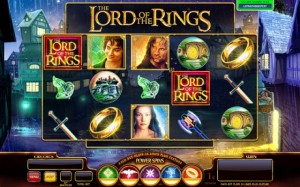 Further to our earlier report this week, attorney and message board member Douglas C. Kane aka Voronwë the Faithful has once again sent us a breakdown on the latest Tolkien Lawsuit.
Further to our earlier report this week, attorney and message board member Douglas C. Kane aka Voronwë the Faithful has once again sent us a breakdown on the latest Tolkien Lawsuit.
Continue reading “Making Sense of the latest Tolkien Lawsuit”
Posted in:
Share:

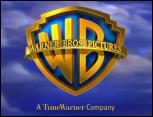 Warner Bros. is going after the estate of author J.R.R. Tolkien hard in litigation over online slot machines and games tied to the lucrative Lord of the Rings and Hobbit properties.
Warner Bros. is going after the estate of author J.R.R. Tolkien hard in litigation over online slot machines and games tied to the lucrative Lord of the Rings and Hobbit properties.
In November, the Tolkien estate and and its book publisher HarperCollins filed an $80 million lawsuit that claimed that Rings/Hobbit producers including Warner Bros. had infringed the copyright in the books and breached a contract by overstepping their rights.
Rings/Hobbit rightsholder Saul Zaentz Co. already made their own counterclaim that the Tolkien estate has breached an implied covenant of good faith and fair dealing by going down this road. Continue reading “Warner Bros. claims Tolkien Estate breached Hobbit contract”
Posted in:
Share:

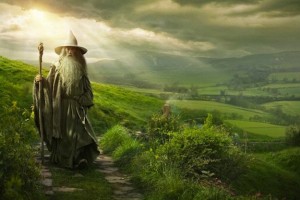 For readers of The Hobbit, which became an almost overnight classic following its 1937 debut, the new movie may elicit some puzzlement. Seemingly extraneous flourishes clog up what many remember as a simple fairy tale, and random characters appear at every twist and turn throughout Middle Earth.
For readers of The Hobbit, which became an almost overnight classic following its 1937 debut, the new movie may elicit some puzzlement. Seemingly extraneous flourishes clog up what many remember as a simple fairy tale, and random characters appear at every twist and turn throughout Middle Earth.
Yet those fans who went on to immerse themselves in J.R.R. Tolkien’s wider lore will find inspiration. For the most part, director Peter Jackson does not exercise an extra heaping of artistic license. Rather, Jackson—reportedly something of a nerd himself—borrows from the larger Tolkien literature to create a rich Hobbit tableau.
“Jackson knows the lore pretty well and wanted to bring that larger material in there wherever he could,” said Michael Drout, an English professor at Wheaton College who founded the academic journal Tolkien Studies and edited the J.R.R. Tolkien Encyclopedia. It’s this so-called textuality—or texts behind texts behind other texts—that lends Tolkien’s work the air of reality, he said, and which Jackson seeks to capture in his films.
Jackson isn’t free to tap into any detail he wants from Tolkien’s wider works, however. “He had a very difficult task in that the movie rights extend only to The Hobbit and Lord of the Rings,” said John Rateliff, an independent Tolkien scholar and author of The History of the Hobbit. “He’s well aware that there’s a great deal more material set in that world, but contractually not allowed to use that material in the movies.”
[Read More]
Posted in:
Share:

 Have you ever wondered how Peter Jackson’s film-making style has evolved over the last 15 or so years?
Have you ever wondered how Peter Jackson’s film-making style has evolved over the last 15 or so years?



 TORn friend, Brian Tither, who has studied Old and Middle English and Old Icelandic at Victoria University NZ, has sent this response to our post on
TORn friend, Brian Tither, who has studied Old and Middle English and Old Icelandic at Victoria University NZ, has sent this response to our post on  Further to our
Further to our  Warner Bros. is going after the estate of author J.R.R. Tolkien hard in litigation over online slot machines and games tied to the lucrative Lord of the Rings and Hobbit properties.
Warner Bros. is going after the estate of author J.R.R. Tolkien hard in litigation over online slot machines and games tied to the lucrative Lord of the Rings and Hobbit properties.